With 40 years of culinary experience starting at age 20, Chef Keiichiro Fujino has honed his skills across various resorts, hotels, and international establishments, notably at Okura Tokyo, specializing in Japanese cuisine. This expertise now enriches Hotel Okura Manila’s culinary offerings at Yamazato and Yawaragi.
Bridges: Is this your first time in the Philippines, and what excites you about this experience?
Chef Fujino: I’ve visited before but this is my first time to actually live in the Philippines, and I look forward to immersing myself in an entirely new and unique culinary landscape that differs from what I’ve encountered in Japan.
Can you highlight some of the inventive dishes at Yamazato and share any crowd favorites?
In the beginning, I experimented to align with Filipino tastes, considering potential adjustments. Surprisingly, I discovered that the Filipino market is receptive to authentic Japanese fine dining. Currently, I’m maintaining the same style as the flagship The Okura Tokyo while adapting certain elements to cater to local preferences. I believe that culinary experiences should be as enjoyable and accessible as music, requiring minimal explanation. For those seeking more depth, I’ve crafted a narrative behind each dish.
Looking ahead, what menus or dishes are you eager for people to experience in the coming year?
I’m particularly excited about showcasing our seasonal courses, with a special emphasis on the appetizer—an assortment of small dishes capturing the essence of each season. It serves as an enticing introduction to our culinary journey. I encourage guests to visit throughout the year to witness the dynamic transition reflected in the seasonal ingredients and cultural nuances from Japan.
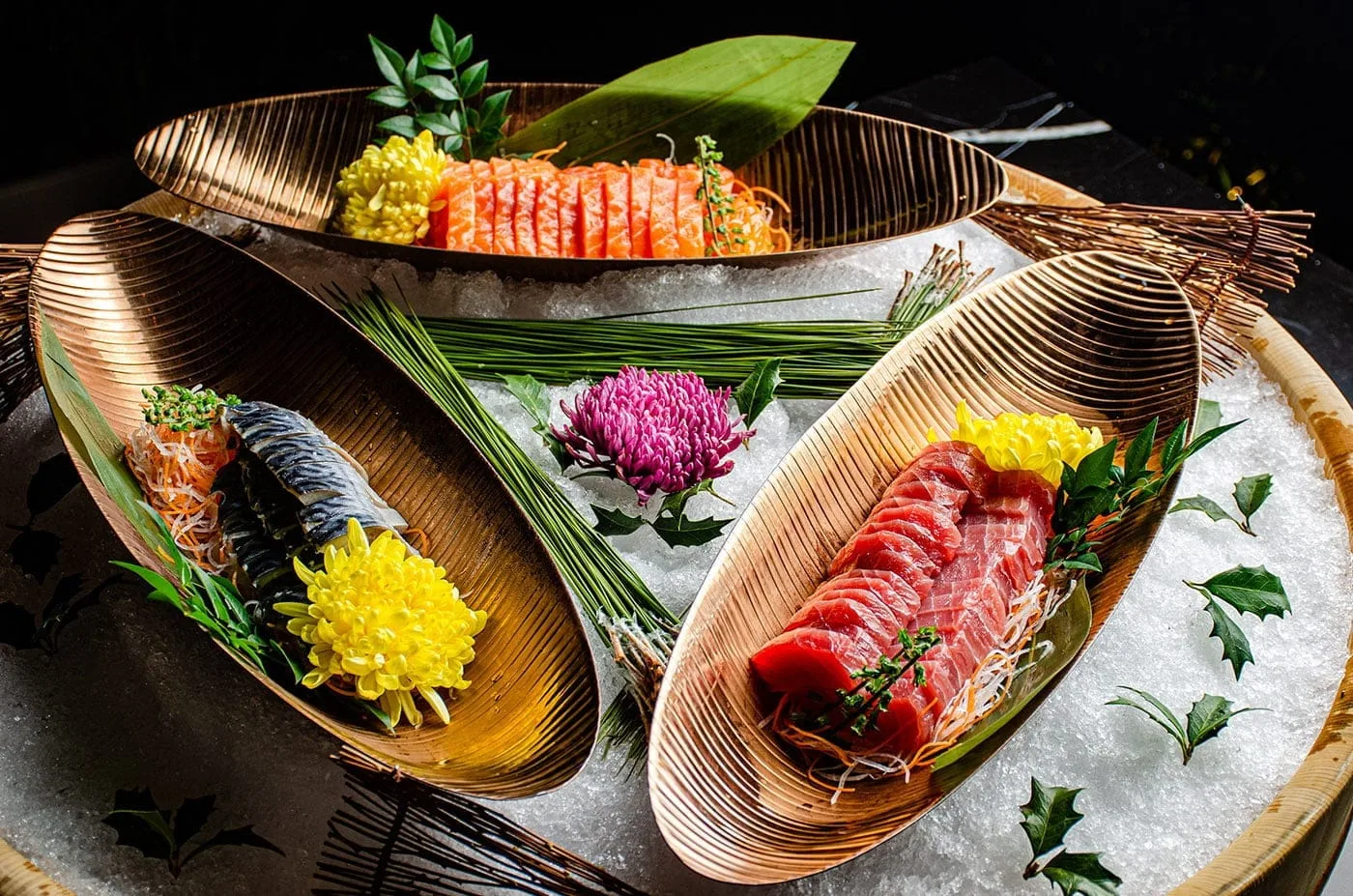
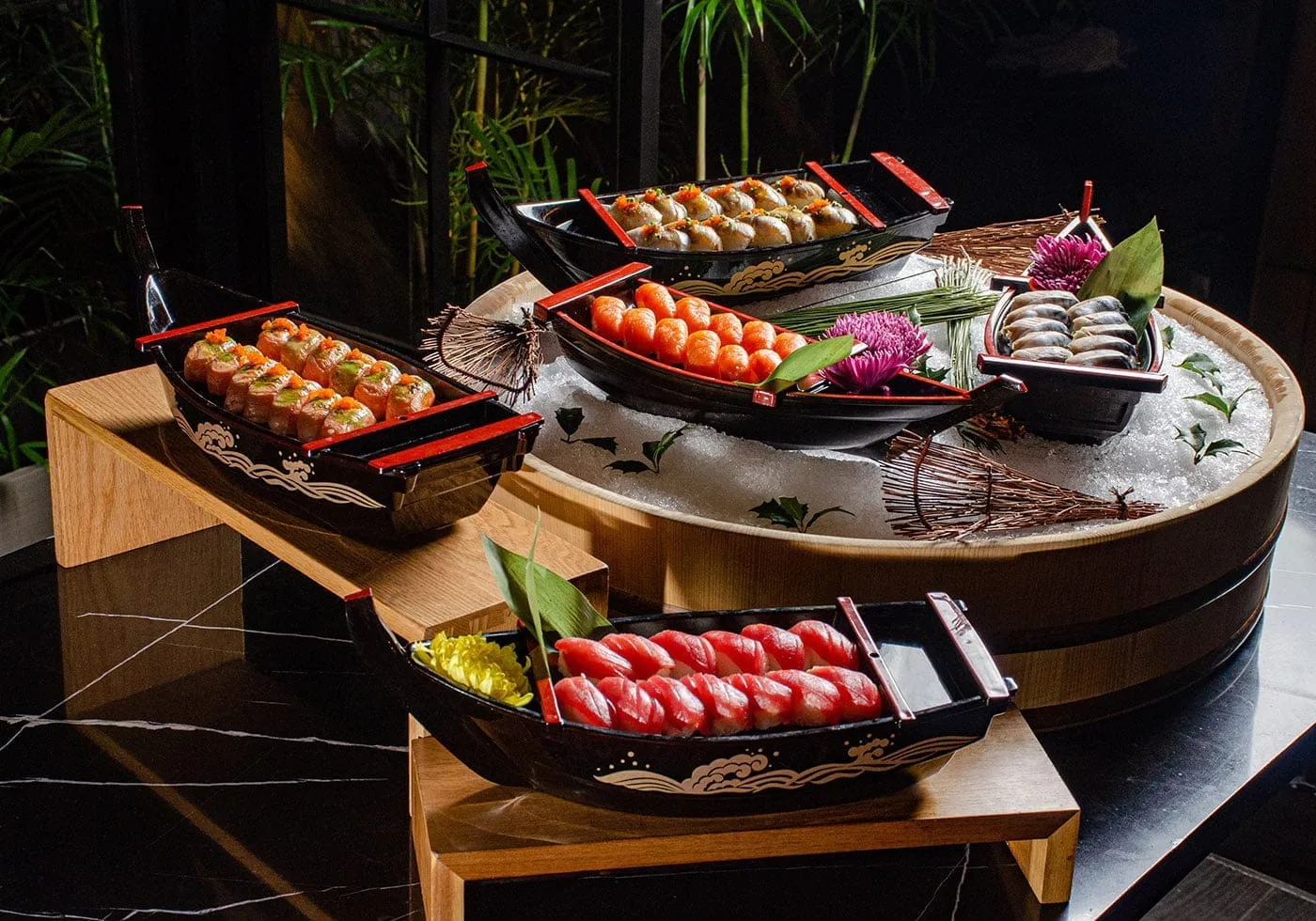
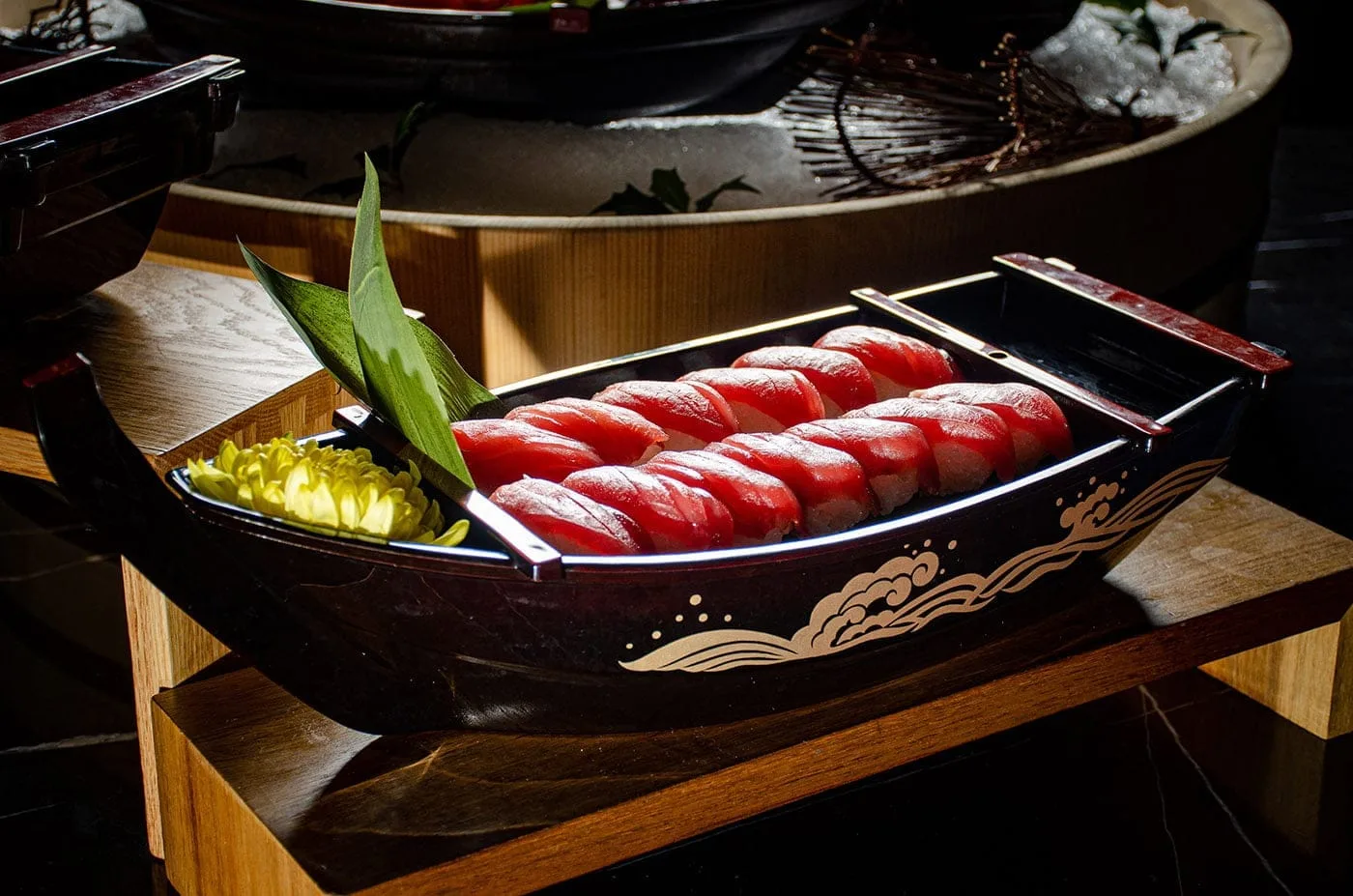
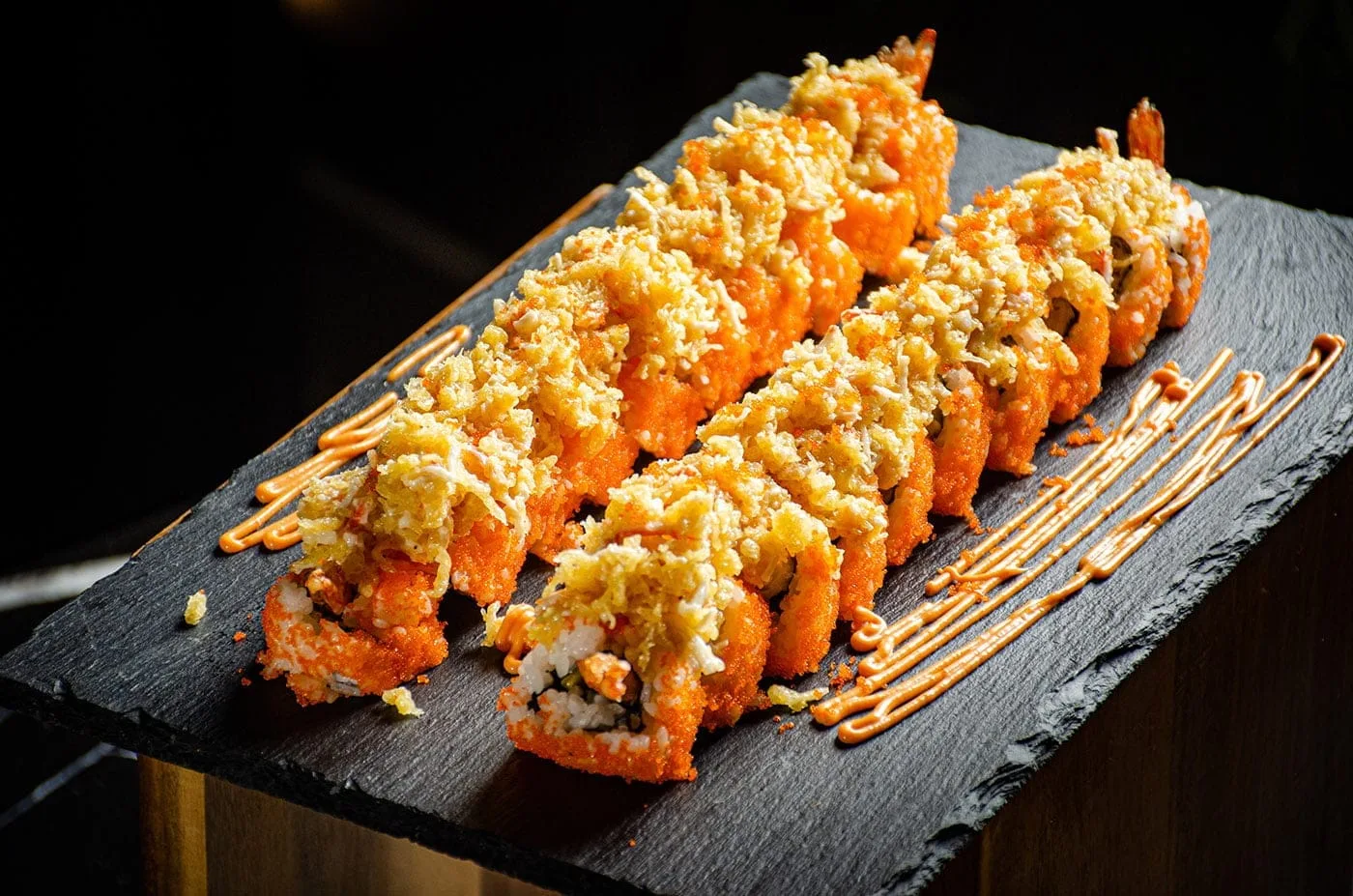
How do you balance authenticity with catering to diverse guests? Can you share your culinary philosophy?
We offer personalization and “surprise” based on customer information. I believe that cooking, like music, is a form of communication that transcends language barriers. Throughout my culinary journey, I cook with wishes and messages for gratitude towards God (deities), nature, love for human beings, and hope for the future.
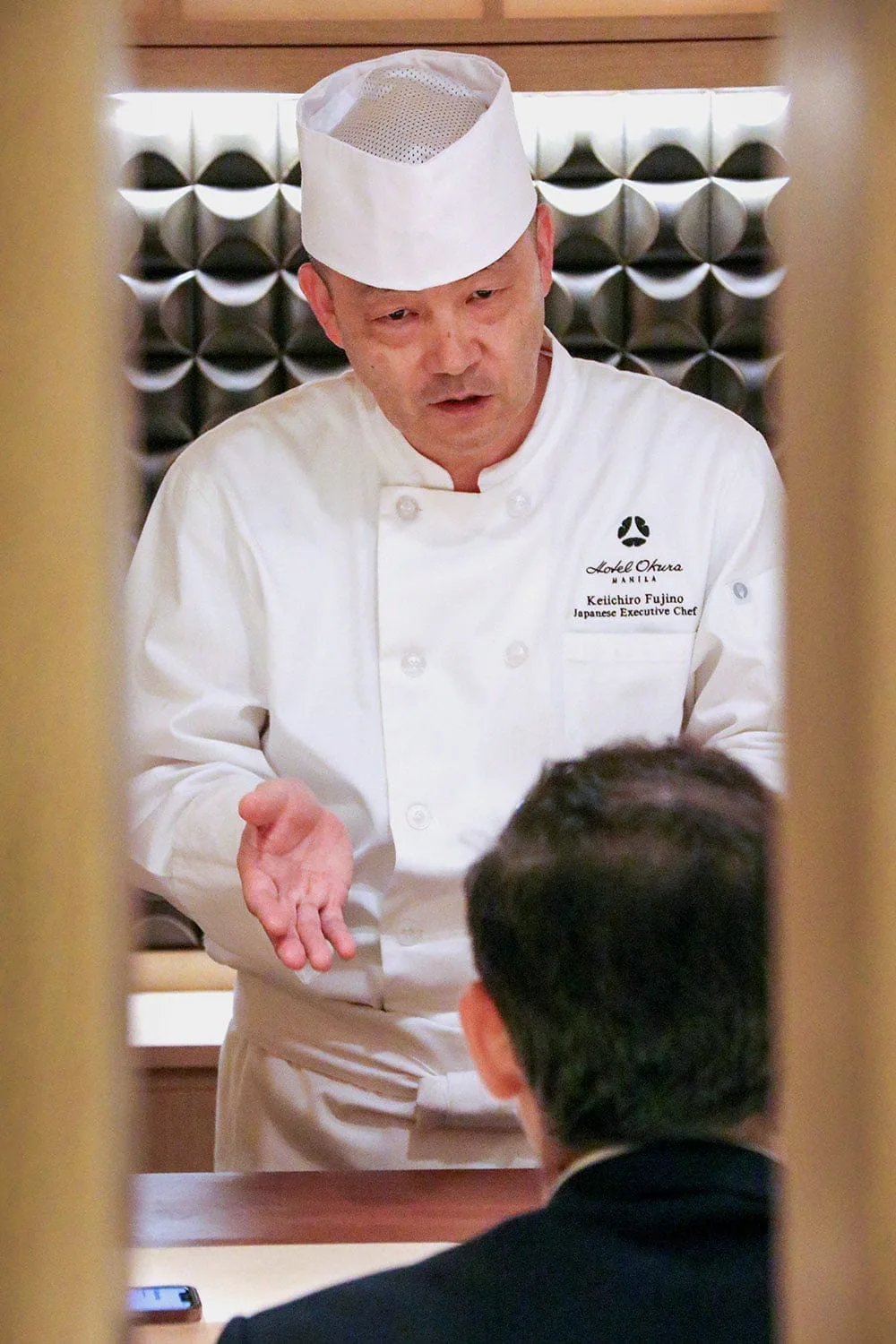
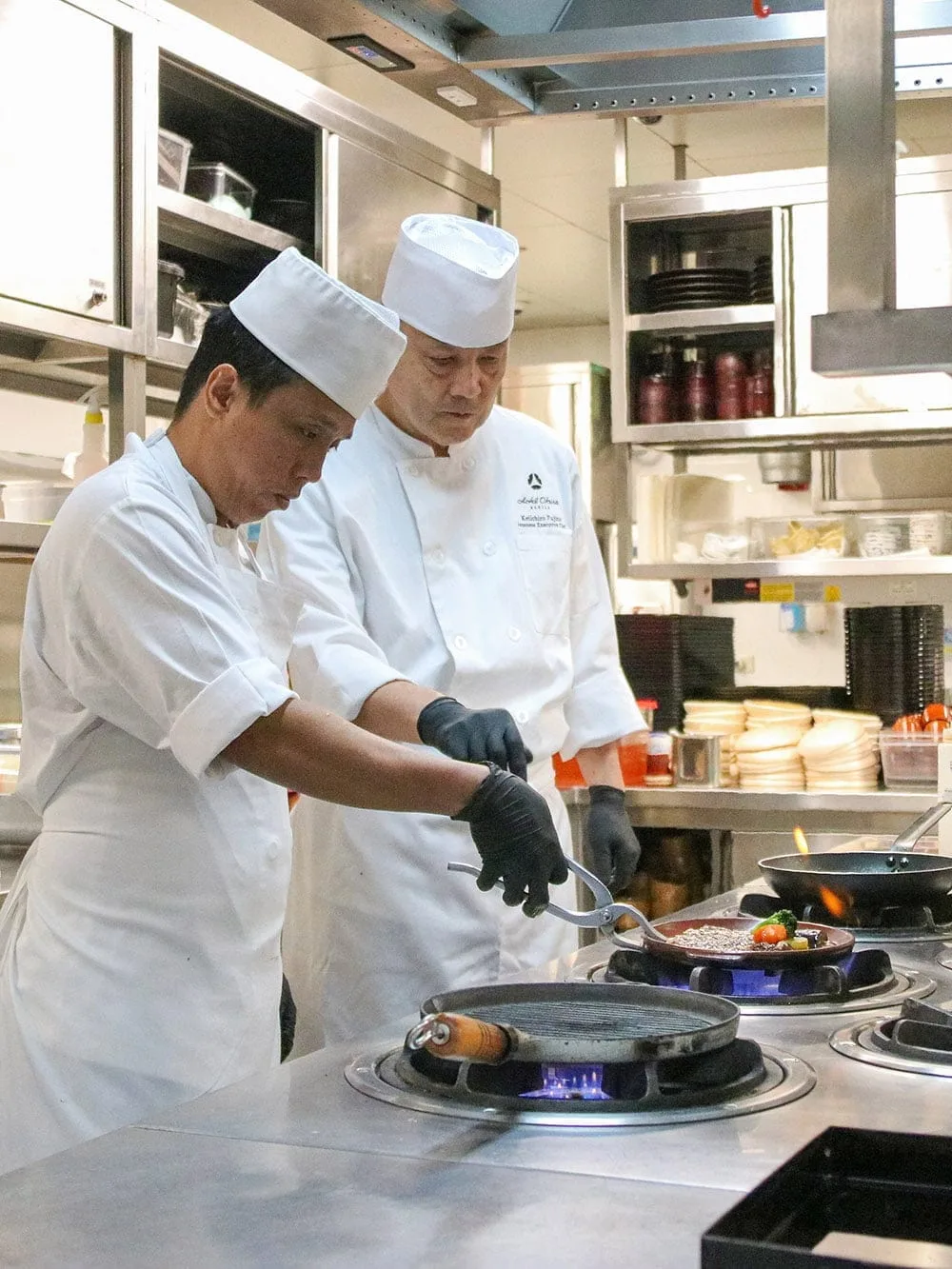
Right: Chef Keiichiro Fujino orchestrates a symphony of flavors in the kitchen of Yamazato. | © Bridges
What are the highlights of the fine-dining experience at Yamazato? Is the menu inspired by any particular region of Japan? How many items do you have on the menu?
The cuisine in the Yamazato branches outside Japan is adjusted to suit the needs and palates of each country, incorporating the distinctive cuisine of each region based on the cuisine of the flagship branch in Tokyo.
I believe that cooking, like music, is a form of communication that transcends language barriers.
Keiichiro Fujino, Japanese Executive Chef of Hotel Okura Manila
Sustainability is an important buzzword in today’s restaurant milieu; moreover, it is a concept that is very much a part of Japanese culture. How do Yamazato and Yawaragi do their share to uphold sustainability and minimize waste?
The origin of Japanese cuisine lies not only in the sense of the seasons but also in the promise of making the most of the ingredients themselves. Bones, scraps of meat and vegetables that cannot be used as it is, whether meat, poultry, or vegetables, are used as the basis of sauces and soup stock in each dish and are used with care as an important point that brings out the flavor of the ingredients. Ingredients = life. This is related to the spirit of the word “itadakimasu.”







